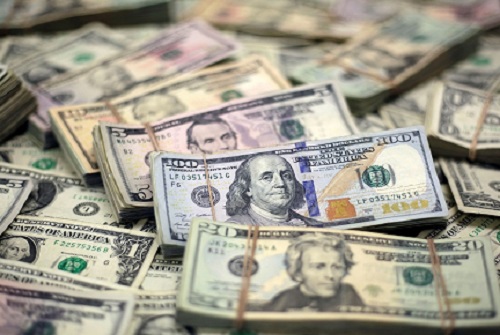Staff Correspondent
Published:2022-09-09 16:59:52 BdST
Foreign reserves drop further to $37.2bn
The country’s foreign currency reserve has declined further to $37.2 billion after Asian Clearing Union (ACU) payment for imports from Asian countries for the last two months.
The central bank made $1.47 billion ACU payment for July and August on Wednesday. Besides, it also sold $50 million to commercial banks to address the dollar crisis, central bank officials informed.
This reserve is enough for meeting the import cost for four and a half months, higher than the official requirement for a reserve than can meet at least three months' import cost.
Nine countries—Bangladesh, India, Nepal, Bhutan, Myanmar, Pakistan, Sri Lanka, Maldives and Iran -- are members of ACU. The dues among these nations are paid every two months through Federal Reserve Bank.
Bangladesh paid the amount on Wednesday midnight and the deducted amount will be reflected from Thursday.
During the last one year, the central bank lost its reserve by nearly $11.5 billion on the back of high imports after corona recovery and a fall in remittance.
The Russia-Ukraine war has emerged as a new global menace when the world is reeling from the corona crisis. The war and western sanctions on Russia pushed up global food, fuel, fertiliser and commodity prices abruptly.
The reserve hit the peak at $48 billion in 2021, which slipped to $42 billion at the end of the last fiscal year. It hovered between $39.80 billion and $40 billion until July 20 and stood at $39.50 billion after July Month.
The government has taken several initiatives including tightening the noose on imports and raising cash incentives on remittances sent through the banking channel.
Despite the fall, the central bank officials say the reserve situation is not alarming as it can able to meet nearly five months' import cost, whereas three months' reserve for any country is considered comfortable.
The central bank sources said the regulator is selling US dollars to banks at Tk 95 to only meet bills of government’s fuel import and emergency food import. The rate was Tk 86 earlier.
Banks can sell the dollar with Tk 1 profit over Tk95, but it is not being maintained properly.
Banks are paying Tk 104 to Tk 107 to pull in foreign remittance, while the rate is Tk 100 in case of buying from the exporters, which is finally reaching Tk 101 and Tk 103 in encashment of import bills.
However, the rate is Tk 107-108 in the exchange houses and kerb market the rate ranges from Tk 108 and Tk 111.
Unauthorized use or reproduction of The Finance Today content for commercial purposes is strictly prohibited.


